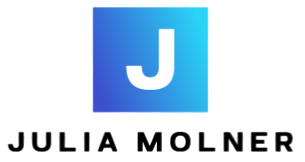
Utilizing FHIR Terminology Servers for Seamless Cross-Platform Healthcare Communication
Efficient data exchange depends on dependable systems that can understand and share information exactly across multiple platforms. A FHIR Terminology Server for Healthcare enables organizations to align data formats, improve understanding, and maintain consistency between varied systems. By connecting different applications through standardized terminologies, these servers remove barriers to integration. The result is a smoother and more effective exchange of critical information across diverse technology environments, ensuring each connected system receives and interprets data in the intended format without unnecessary complexity.
Standardizing Data Exchange
Consistency in terminology ensures smooth transfer between connected systems.
- Shared vocabularies reduce confusion in transmitted records
- Uniform coding enables accurate interpretation across platforms
- Centralized management keeps updates aligned across applications
- Mapping tools link similar terms between different systems
- Predefined standards improve compatibility between connected services
By creating consistent language, platforms can interact without risking misinterpretation or loss of meaning.

Enabling System Interoperability
Interoperability strengthens collaboration across various technology solutions.
- Common structures simplify integration efforts for new systems
- Aligned data elements improve coordination between connected applications
- Translation services convert formats for seamless sharing
- Linking methods ensure data remains synchronized
- Secure protocols protect shared content during transfer
Through standardized processes, systems communicate effectively without sacrificing security or accuracy.
Supporting Cross-Platform Functions
A FHIR Terminology Server for Healthcare enhances multi-platform communication.
- Consistent tags help locate related data quickly
- Cross-references link similar content across different solutions
- Search functions improve retrieval of standardized terms
- Shared libraries provide central access to updated terms
- Version control tracks changes to keep systems current
This approach allows multiple tools to work together smoothly without duplication or delay.
Improving Data Accuracy
Accurate records support better decision-making.
- Standard codes prevent errors in interpretation
- Regular updates maintain consistency with evolving standards
- Validation checks ensure compliance before sharing data
- Clear labelling improves readability across connected tools
- Harmonized structures minimize mismatched information
By prioritizing accuracy, shared systems can rely on each other’s data without repeated verification.
Reducing Implementation Complexity
Simplified integration shortens project timelines.
- Prebuilt templates reduce custom configuration needs
- Automated mapping connects similar terms instantly
- Clear documentation speeds up system alignment
- Testing tools identify issues early
- Predefined workflows minimize manual adjustments
This restructuring approach makes mixing more accessible and less resource-intensive.
Enhancing User Efficiency
Better tools make daily operations smoother.
- Search optimization locates needed terms quickly
- Simple navigation improves understanding of stored content
- Unified access reduces switching between systems
- Bulk update tools save time on changes
- Alerts signal when new updates are available
Efficient processes reduce the workload for teams, keeping focus on primary tasks.
Building Connected Systems
Developing seamless communication between diverse platforms requires thoughtful integration and reliable terminology management. Using the right technology ensures data flows without errors, systems remain aligned, and users can work efficiently. As connectivity grows, structured and consistent exchanges will become the foundation for operational success across industries.

